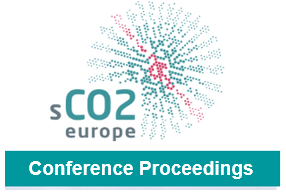sCO2 power cycle development and STEP Demo pilot project
Supercritical CO2 (“sCO2”) power cycles offer the potential for higher system efficiencies than other energy conversion technologies such as steam Rankine or organic Rankine cycles, especially when operating at elevated temperatures. These sCO2 power cycles are being considered for a wide range of applications including fossil fuel fired systems, waste heat recovery, concentrated solar power, and nuclear, and the potential for efficient thermal energy storage.
GTI is leading several sCO2 power cycle technology development projects ranging from component level technology development to large scale integrated pilot testing. The efforts highlighted in this paper include: (1) The 10 MWe Supercritical Transformational Electric Power Pilot plant (STEPDemo, www.stepdemo.us) and (2) its relevance for sCO2 development in general and of note, also in the context of waste heat recovery and thermal energy storage TES applications. In the STEPDemo project, a team led by GTI, Southwest Research Institute (SwRI), and General Electric Global Research (GE GR), along with the University of Houston and the University of Wisconsin), Natural Resources Canada (NRCan), and the Electric Power Research Institute ( EPRI), is executing a project to design, construct, commission, and operate an integrated and reconfigurable 10 MWe sCO2 Pilot Plant Test Facility located at SwRI’s San Antonio, Texas campus. The majority of the project funding is provided by the U.S. Department of Energy, and the remaining funding is by the project team members and a global consortium of industry partners: Engie, American Electric Power, Korea Electric Power Corporation (KEPCO), Natural Resources Canada, and Southern Company. This project is a significant step toward commercialization of sCO2 cycle based power generation and will inform the performance, operability, and scale up for commercial implementation of sCO2 technology across the potential application spectrum. The pilot plant is currently in the final construction phase, with installation of major equipment underway, and commissioning planned for early 2022. By the end of this six year project, the operability of the sCO2 power cycle will be demonstrated and documented starting with a simple recuperated cycle configuration initially operating at a 500 °C turbine inlet temperature and progressing to a recompression closed Brayton cycle technology (RCBC) configuration operating at 715 °C. The paper will also present a vision for the use of the STEPDemo facility as a testbed for other sCO2 component testing, such as thermal energy storage In TES applications, a thermal storage system could be installed adjacent to the STEPDemo power block to demonstrate the integrated operation of TES with a commercially relevant sCO2 cycle. This is relevant to both concentrated solar power (CSP) applications as well as power to power storage systems that utilize sCO2 cycles.
Vorschau

Zitieren
Rechte
Nutzung und Vervielfältigung:
Dieses Werk kann unter einer Creative Commons Namensnennung 4.0 Lizenz (CC BY 4.0)
Creative Commons Namensnennung 4.0 Lizenz (CC BY 4.0)
genutzt werden.
